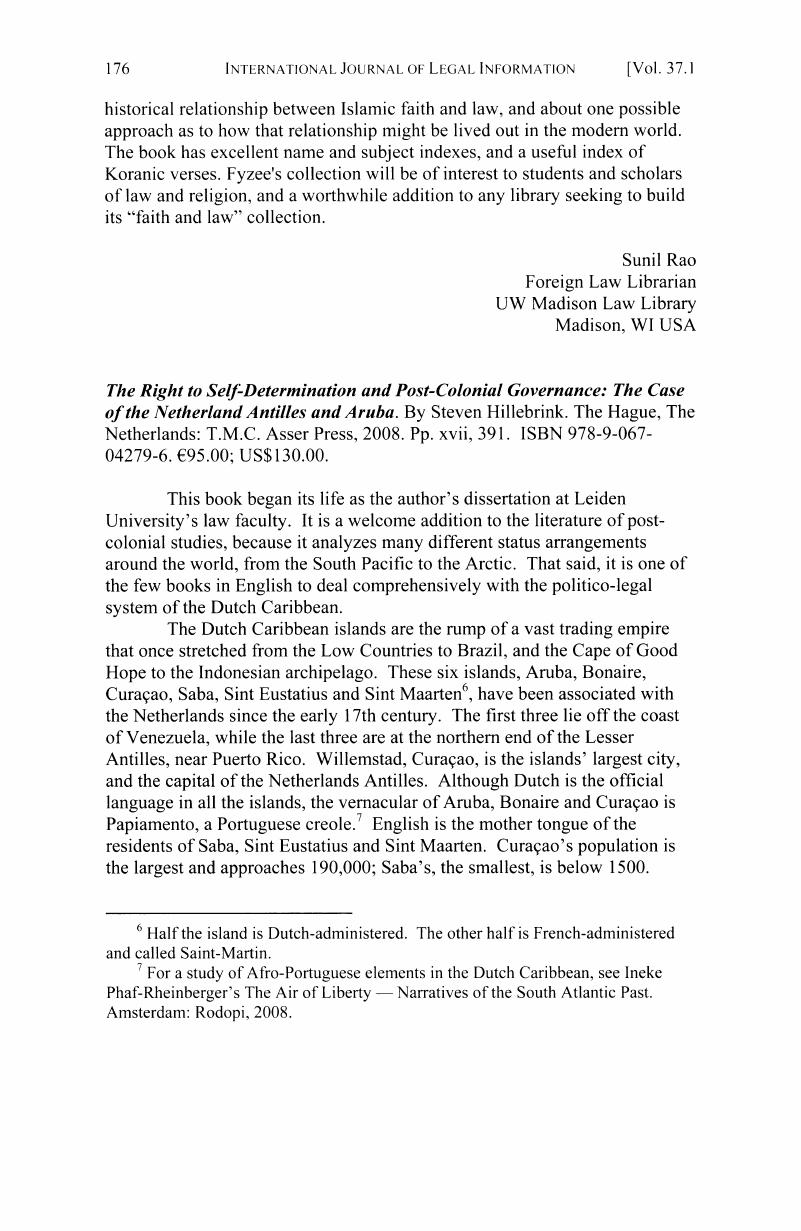No CrossRef data available.
Published online by Cambridge University Press: 28 February 2019

8 The independence option polls under 5% in the Dutch Caribbean. Curaçao's pro-independence faction is a talking shop dominated by a few intellectuals. Sint Maarten's is associated with a single individual, poet Harold Lake. Despite his politics, he was knighted in 2004.Google Scholar
9 Premier Juancho Evertsz foresaw the demise of the Antillean federation using some creative arithmetic: Zes min één is nul (“six minus one equals zero”).Google Scholar
10 In May 2009, 52% of Curaçaoënaars voted for their own separate status, effectively ending the Netherlands Antilles federation. See e.g. “Verdeeld Curaçao stemt voor akkoord” in De Telegraaf of May 21, 2009.Google Scholar
11 See e.g. John Leerdam's fascinating 1995 documentary 30 mei 1969 (Gritu di un pueblo).Google Scholar
12 See e.g. “Corruptieonderzoek was stap te ver” in the Amigoe of May 17, 2009.Google Scholar
13 Another Leiden doctoral conferee, Surinam-born Dennis Rosheuvel, addressed the style of governance suitable for the Dutch Caribbean, quite apart from its constitutional configuration. See “Bestuur op maat voor de Antillen” in the Staatscourant of June 6, 2005.Google Scholar
14 I'm indebted to Profs. Jacques Gourgue (Port-au-Prince) and Mark Kirton (Port of Spain) for this insight.Google Scholar
15 London instituted direct rule in this British Overseas Territory in March 2009, owing to widespread evidence of administrative incompetence and official corruption. See e.g. Gov. Wetherell's press release. Grand Turk: Government House, March 16, 2009.Google Scholar
16 Tweede Kamer der Staten-Generaal informational circular. The Hague: January 2009.Google Scholar
17 For an overview of the constitutional history of the islands, see Dr. Alejandro Paula's article “Hoofdmomenten uit de staatkundige geschiedenis van de Nederlandse Antillen (1865–1986)” in Lantèrnu No. 9. Willemstad: Archivo Nashonal di Antiya Hulandes, 1989.Google Scholar